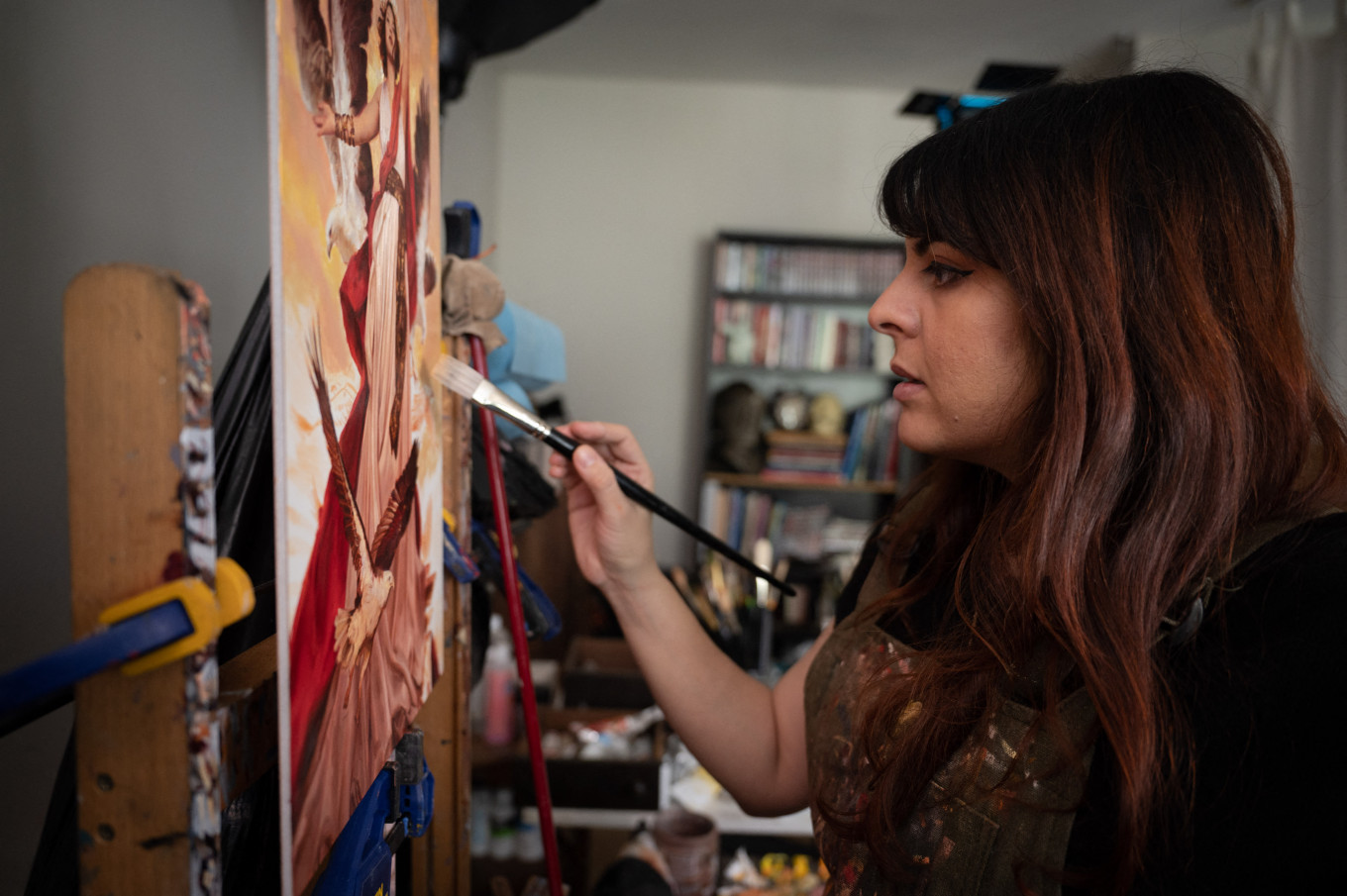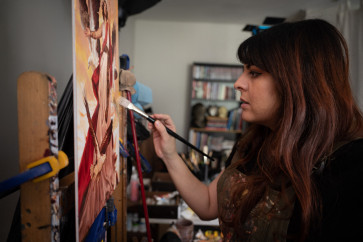Popular Reads
Top Results
Can't find what you're looking for?
View all search resultsPopular Reads
Top Results
Can't find what you're looking for?
View all search resultsArtists fight AI programs that copy their styles
Artists want AI creators to be required to secure permission for works used in training software, with an option to remove it.
Change text size
Gift Premium Articles
to Anyone
A
rtists outraged by artificial intelligence that copies in seconds the styles they have sacrificed years to develop are waging battle online and in court.
Fury erupted in the art community last year with the release of generative artificial intelligence (AI) programs that can convincingly carry out commands such as drawing a dog like cartoonist Sarah Andersen would, or a nymph the way illustrator Karla Ortiz might do.
Such style-swiping AI works are cranked out without the original artist's consent, credit or compensation -- the three C's at the heart of a fight to change all that.
In January, artists including Andersen and Ortiz filed a class-action lawsuit against DreamUp, Midjourney and Stable Diffusion, three image-generating AI models programmed with art found online.
Andersen told AFP she felt "violated" when first she saw an AI drawing that copied the style of her "Fangs" comic book work.
She fired off an indignant reaction on Twitter; it went viral, and other incensed artists reached out to her with stories of their own.
Backers of the suit hope to establish legal precedent governing generative AI models that copy artists' styles.



















